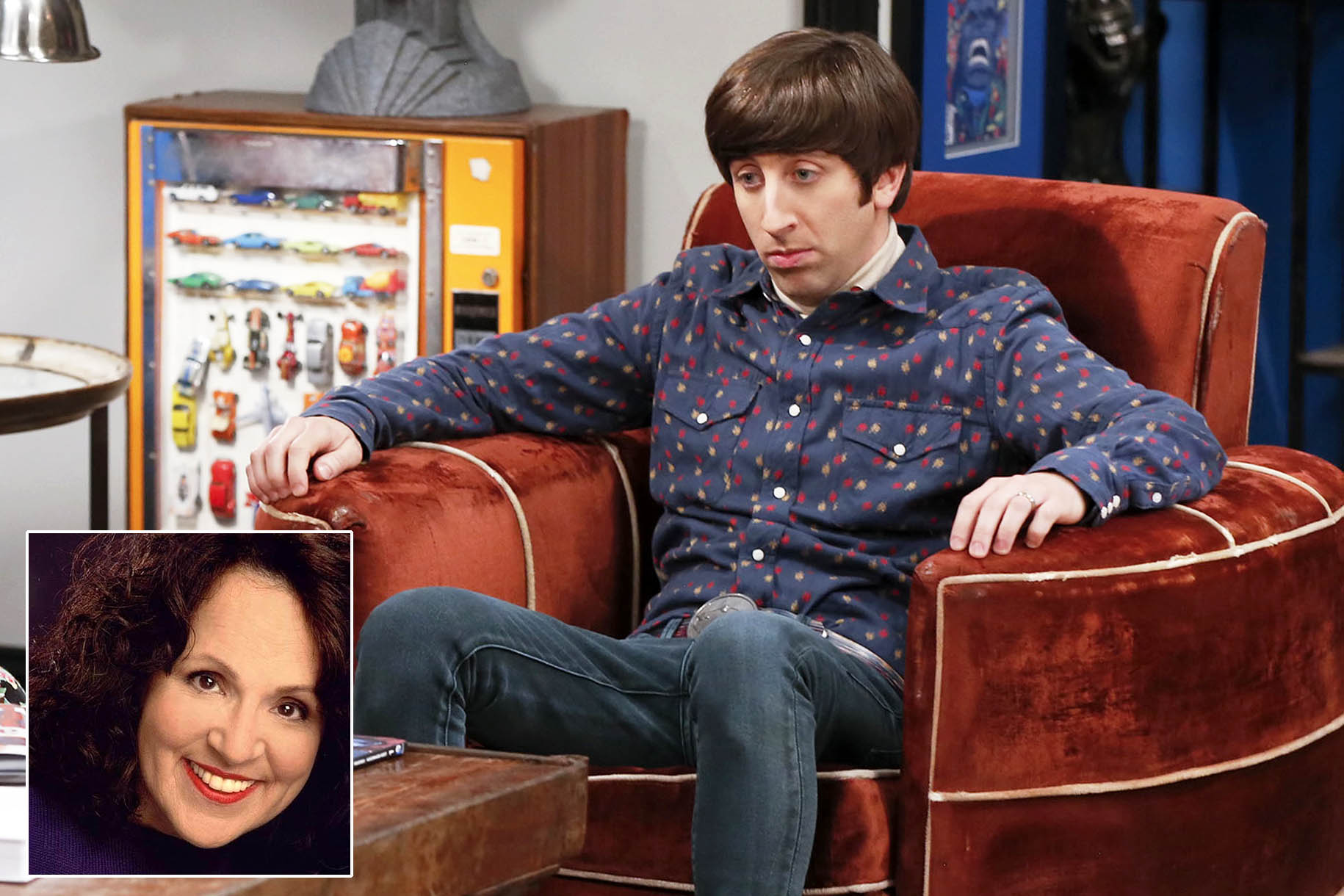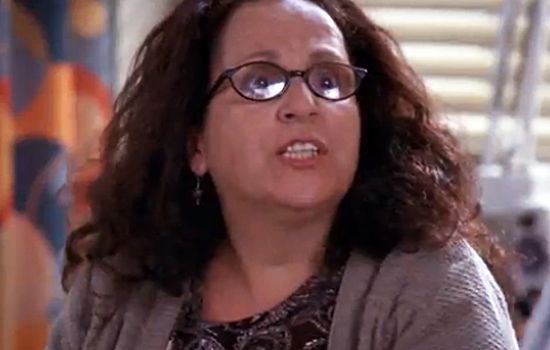Unveiling Mrs. Wolowitz: The Enduring Voice Of The Big Bang Theory
Have you ever found yourself wondering about the unseen yet unforgettable character from The Big Bang Theory? We are, you know, talking about the one whose booming voice could fill a room, even if she never actually stepped into view. That's Mrs. Deborah Debbie Melvina Wolowitz, often simply known and credited as Mrs. Wolowitz on the beloved television series that ran from 2007. Her presence, while purely auditory, was absolutely central to the show's unique charm, shaping the lives of its main characters, especially her son, Howard. It's almost as if her voice became a character all on its own, a very distinct part of the show's fabric.
Her character, a truly protective and sometimes overbearing mother, became a source of endless comedic moments and, too, a surprisingly deep emotional anchor for Howard. Viewers across the globe grew to recognize and, in a way, even love her distinct yelling from off-screen. This unique portrayal made Mrs. Wolowitz one of the most memorable figures in television history, despite her never being fully seen on screen. She was, quite literally, the voice of a generation of TV watchers who adored the show.
Yet, behind this iconic voice was a real person, a truly talented actress whose own story is just as compelling and, frankly, rather poignant. The circumstances surrounding Mrs. Wolowitz's eventual exit from the show are, in fact, rooted in a very sad reality. This article will explore the character's impact, the woman who brought her to life, and, you know, even delve into the proper etiquette of using the title "Mrs." itself.
- Get The Original El Patron Viral Video Now Download And Share.linkmaz
- Hdhub4u 18 Your Ultimate Guide To Adult Entertainment Streaming.linkmaz
- Emuyumi Couple The Ultimate Guide To Their Love Story Journey And Influence.linkmaz
- Iggy Azalea Onlyfans Leaks.linkmaz
- Movierulz5 Com.linkmaz
Table of Contents
- The Woman Behind the Voice: Carol Ann Susi
- Mrs. Wolowitz: A Character Like No Other
- The Power of an Unseen Presence
- The Meaning of "Mrs.": Exploring a Familiar Title
- The Legacy That Endures
- Frequently Asked Questions About Mrs. Wolowitz
The Woman Behind the Voice: Carol Ann Susi
The unforgettable voice of Mrs. Wolowitz belonged to the incredibly talented actress, Carol Ann Susi. Born in Brooklyn, Susi was, in fact, of Italian descent, bringing a certain authentic warmth and, you know, a spirited energy to her performances. She was a veteran comedian and a truly respected cast member of The Big Bang Theory, making her mark in a way few others could. Her voice work for the show was, apparently, just one facet of a long and varied career in entertainment.
It's important to remember that the main cause behind Mrs. Wolowitz’s exit from The Big Bang Theory was the truly sad death of Carol Ann Susi herself. The veteran comedian and Big Bang Theory cast member passed away on November 11, 2014, after a battle with cancer. This was, as a matter of fact, just five days after her final voice appearance in The Big Bang Theory season 8, episode 8, which was titled "The Prom Equivalency." Her passing at the age of 62 left a huge void, not just for her family and friends, but also for the millions of fans who adored her work.
Personal Details & Bio Data: Carol Ann Susi
| Full Name | Carol Ann Susi |
| Born | February 2, 1952 |
| Died | November 11, 2014 (aged 62) |
| Birthplace | Brooklyn, New York, USA |
| Ethnicity | Italian-American |
| Occupation | Actress, Comedian |
| Known For | Voice of Mrs. Wolowitz in The Big Bang Theory |
| Final Appearance (TBBT) | Season 8, Episode 8, "The Prom Equivalency" (aired November 6, 2014) |
Mrs. Wolowitz: A Character Like No Other
Mrs. Deborah Debbie Melvina Wolowitz, as she was formally known, was a truly unique character on The Big Bang Theory. Her portrayal was, in a way, revolutionary for a sitcom. The writers chose to never show her face, allowing her voice alone to paint a vivid picture of her personality and her, you know, rather large presence in Howard's life. This creative choice truly amplified her comedic effect, making her unseen antics and booming declarations even funnier. She was, quite literally, a voice in the wilderness of Howard's apartment, a constant, loving, and sometimes suffocating force.
- Ofilmywap.linkmaz
- Vegamoviesst Your Ultimate Destination For Movie Entertainment.linkmaz
- Comprehensive Insights Into Kennedy Noems Remarkable Journey.linkmaz
- Aditi Mistry New Live Sexy Video The Buzz Facts And Everything You Need To Know.linkmaz
- Filmyfly Hollywood Your Ultimate Guide To Streaming Hollywood Movies.linkmaz
Her relationship with Howard was, apparently, a central part of his character development throughout the series. She was, in some respects, the quintessential Jewish mother, fiercely protective, prone to guilt-tripping, and always, always making sure her son was fed. This dynamic provided endless laughs, but also, actually, showed a deep bond of love and codependency that many viewers could, in a way, relate to. It was a very complex, yet endearing, connection.
The Power of an Unseen Presence
The decision to keep Mrs. Wolowitz unseen was, honestly, a stroke of genius. It allowed the audience to imagine her, to create their own mental image of this larger-than-life character. This, you know, made her even more mysterious and, arguably, more memorable. Her voice, with its distinctive Brooklyn accent and incredible volume, became her defining characteristic. It was a voice that could convey warmth, frustration, love, and concern, all in a single, booming utterance. This technique, basically, showed that you don't always need to see a character to feel their impact.
Her off-screen presence also, you know, served a very practical purpose in the show's narrative. It allowed for jokes that played on the idea of her being nearby but not visible, creating scenarios that were, frankly, hilarious. Think of all the times Howard would try to sneak around, only to be caught by the sound of her voice. Her absence from the screen, actually, amplified her presence in the story, making her an integral part of the show's comedic timing and, in a way, its heart. She was, truly, a masterclass in character building through sound alone.
The Meaning of "Mrs.": Exploring a Familiar Title
The character's name, Mrs. Wolowitz, also brings up an interesting point about titles themselves. Generally speaking, it is, in fact, considered proper etiquette to use "Mrs." to refer to married women. "Miss" is used to refer to unmarried women and young girls, and "Ms." is used to refer to a woman of unknown marital status or when marital status is, you know, simply irrelevant. These titles are, basically, small but important parts of how we show respect and convey information about someone's social standing or marital situation. It's a bit like a shorthand for social cues.
A Brief History of "Mrs.", "Miss", and "Ms."
The title "Mrs." actually originated as a contraction of the honorific "mistress." Interestingly, "mistress" was, in fact, the feminine equivalent of "mister" or "master" and was, originally, applied to both married and unmarried women in the upper class. This is, in a way, quite different from how we use it today. Writers who used "Mrs." for unmarried women include, for example, Daniel Defoe, Samuel Richardson, and Henry Fielding. So, the usage has, apparently, shifted quite a bit over time. It's a really fascinating evolution of language, you know, when you think about it.
While "Mrs." and "Ms." can sometimes be used as interchangeable terms, you might wonder what the proper etiquette rule is based on marital status. "Miss" is, technically, the incorrect title for a single woman in many formal contexts, but "Ms." can be used as an official title for both married and unmarried women. The plural of "Mrs." is "Mmes.," which is a shortening of the French plural "mesdames." English borrowed this French plural for this honorific after adopting "Messrs." for the plural of "Mr." It’s, in fact, a rather interesting linguistic journey, isn't it?
Modern Usage and Etiquette
"Ms." is a general title that does not indicate marital status but is, still, feminine. "Mrs." is a traditional title used for a married woman. "Miss" is a traditional title used for an unmarried woman. "Mx." is a title that indicates neither marital status nor gender, offering a very neutral option. For a married woman, "Mrs." is a title used, but the more neutral title "Ms." can be used instead for a woman whose marital status is unknown or irrelevant, or who, you know, simply expresses a preference for this mode of address. It's all about respect and personal choice, basically.
In English, personal titles like "Mr.," "Mrs.," "Ms.," and "Miss" are used before a person’s last name or full name to show respect, gender, and marital status. However, these titles have, in fact, different meanings and are used in different situations. For instance, if a woman has another title, like "Dr.," you should always use it unless specifically instructed otherwise, especially in professional contexts. This is, you know, a pretty important rule of thumb. It just shows a basic level of courtesy.
"Mrs." is used for a woman who is married or is a widow. It’s short for "missus." In the past, it would have been common to see this title used before the woman’s husband’s first and last name. For example, if Jill married Joe Smith, Jill might be called "Mrs. Joe Smith." "Mrs." is the abbreviation of "missus" and, you know, refers to married women. "Ms." came about in the 1950s as women sought to differentiate themselves from being known primarily by their marital status. It was, arguably, a step towards greater independence in language.
The Legacy That Endures
The character of Mrs. Wolowitz, and the incredible talent of Carol Ann Susi, left an indelible mark on television. Her voice, so distinct and full of personality, truly became a beloved part of The Big Bang Theory. Even after her character's passing on the show, which was a very poignant moment for viewers, her presence continued to be felt. Howard, for example, often referenced her, and her memory, you know, shaped many of his subsequent actions and decisions. It was, in fact, a testament to how deeply she impacted him and, by extension, the audience.
The enduring popularity of Mrs. Wolowitz serves as a powerful reminder that a character doesn't need to be physically present to be impactful. Sometimes, a voice, a personality, and the brilliant acting behind it are more than enough to create a lasting legacy. She was, in a way, a truly unique comedic force. Fans still talk about her, and, you know, her lines are still quoted. Her story, and Carol Ann Susi's contribution, continue to resonate with people who revisit the show or discover it for the first time. Learn more about The Big Bang Theory on our site, and, you know, you can also link to this page about character development in sitcoms.
Frequently Asked Questions About Mrs. Wolowitz
Why did Mrs. Wolowitz die in Big Bang Theory?
Mrs. Wolowitz's character died in The Big Bang Theory because the actress who voiced her, Carol Ann Susi, sadly passed away in real life. The show's creators decided to write her character's death into the storyline as a tribute to Susi, honoring her contribution to the series. It was, honestly, a very touching way to handle a difficult situation.
Who was the actress who voiced Mrs. Wolowitz?
The actress who voiced Mrs. Wolowitz was Carol Ann Susi. She was a veteran comedian and actress known for her distinctive voice and various roles across television and film, though her work on The Big Bang Theory became, arguably, her most famous. She brought, you know, such a unique energy to the role.
What was Mrs. Wolowitz's first name?
Mrs. Wolowitz's first name was Deborah. She was also sometimes referred to as Debbie or Melvina, but her full name was Deborah Debbie Melvina Wolowitz. The show, you know, didn't often use her first name, preferring to keep her as "Mrs. Wolowitz" for comedic effect.
- Erome Yailin La Mas Viral.linkmaz
- Strawberrytabby Noodlemagazine.linkmaz
- Sone 436 Japanese Your Ultimate Guide To Discovering This Cultural Gem.linkmaz
- 5movierulz 2025 Download Kannada.linkmaz
- Overtime Megan Leaked Nudes.linkmaz

The Big Bang Theory: Mrs. Wolowitz's 11 Most Memorable (and Loudest

Watching the 8th season of That '70s Show and look who I see... We

Carol Ann Susi (Mrs. Wolowitz, Madre de Howard) | Carol ann susi, Carol